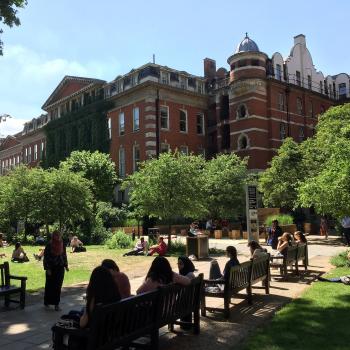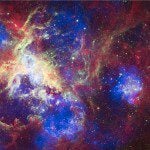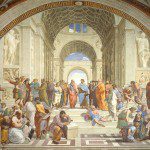
(Wikimedia Commons public domain image)
***
Here’s a New Year’s article that I wrote for Meridian Magazine:
“A Lesson from Two Great Leaders on Beginning Again When It Feels Like You’ve Failed”
Here, perhaps relevant to my article above, are recent stories about a pair of Latter-day Saints that you might enjoy:
“BYU’s Mikayla Colohan Named Country’s Top College Soccer Player Following Team’s ‘Magical’ Season”
Some of you, I think, will find this interesting. It’s from the website of the Church of Jesus Christ of Latter-day Saints:
“2021 Year in Review: A look back at the past year of the Church of Jesus Christ”
***
And now for an abrupt change of subject and tone, as I try to get serious again about my writing in preparation for the dawning of a new year — my first as retired geezer:
Is atheism or naturalism essential for the practice of science? Thomas Nagel is a prominent philosopher based at New York University and a a very committed atheist. As he has written, “I lack the sensus divinitatis that enables—indeed compels—so many people to see in the world the expression of divine purpose as naturally as they see in a smiling face the expression of human feeling.” In The Last Word, he wrote, “I want atheism to be true and am made uneasy by the fact that some of the most intelligent and well-informed people I know are religious believers. It isn’t just that I don’t believe in God and, naturally, hope that I’m right in my belief. It’s that I hope there is no God! I don’t want there to be a God; I don’t want the universe to be like that.”
And yet, to the question of whether or not naturalistic atheism is fundamental to the practice of science, Nagel firmly responds that No, it isn’t:
Such a world view is not a necessary condition of the practice of any of those sciences, and its acceptance or nonacceptance would have no effect on most scientific research. For all I know, most practicing scientists may have no opinion about the overarching cosmological questions to which this materialist reductionism provides an answer. Their detailed research and substantive findings do not in general depend on or imply either that or any other answer to such questions.
Thomas Nagel, Mind and Cosmos: Why the Materialist Neo-Darwinian Conception of Nature is Almost Certainly False (New York: Oxford University Press, 2012), 4.












